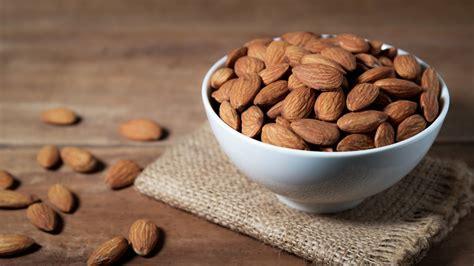
Researchers in Australia completed a 9 month study with either nut rich or nut free diets using almonds and the results are getting headlines around the world. Of note, the study was funded by the Almond Board of California.
STUDY OBJECTIVE
This study evaluated weight and cardiometabolic outcomes after a 3-month calorie-restricted diet (−30%) containing almonds (almond-enriched diet [AED]) or containing carbohydrate-rich snacks (nut-free control diet [NFD]) (Phase 1). After the first 3 months the participants followed weight maintenance diet for 6 months (Phase 2).
During both phases of the study, participants in the AED group incorporated 15% of their energy as unsalted, whole, natural Californian almonds with skins (e.g., 30–50 g of almonds), whereas participants in the NFD group included 15% of their energy from carbohydrate-rich snack foods (oven-baked fruit cereal bar and rice crackers)
Participants (25–65 years old) with overweight or obesity (BMI 27–35) were randomly allocated to AED (n = 68) or NFD (n = 72).
STUDY RESULTS
Both groups lost weight during Phase 1 (−7.0 kg AED vs. −7.0 kg NFD). Both groups in Phase 2 over the next 6 months lost an additional 1 kg of weight. There were also improvements in percentage lean mass after Phase 2 in both groups.
Reductions occurred in fasting glucose, insulin, blood pressure, total cholesterol, low-density lipoprotein (LDL-cholesterol), and triglycerides, while high-density lipoprotein (HDL-cholestereol) increased by the end of Phase 2 in both groups. T
STUDY CONCLUSIONS
An energy-restricted AED resulted in weight loss and weight loss maintenance comparable to an energy-restricted NFD, and both diets supported cardiometabolic health. The AED resulted in greater improvements in some lipoprotein subfractions, which may enhance reductions in cardiovascular risk.
This is the largest study to date to assess benefits of incorporating almonds into an energy-restricted diet for weight loss and weight loss maintenance, and it contributes to the growing evidence that nuts can support a healthy diet for weight management. It also contributes to the limited knowledge of the effects of nuts on lipoprotein subfractions.
One of the researchers said that “Nuts, like almonds, are a great snack. They’re high in protein, fiber, and packed with vitamins and minerals, but they also have a high fat content which people can associate with increased body weight. Nuts can improve blood cholesterol levels, ease inflammation, and contribute to a healthy heart. Both the nut and nut free diets resulted in approximately 9.3% reduction in body weight over the trial. Additionally, nuts have the added benefit of making you feel fuller for longer, which is always a pro when you’re trying to manage your weight.”
Prior studies examing weight loss with another high fat choice, olive oil, also demonstrated weight loss.

